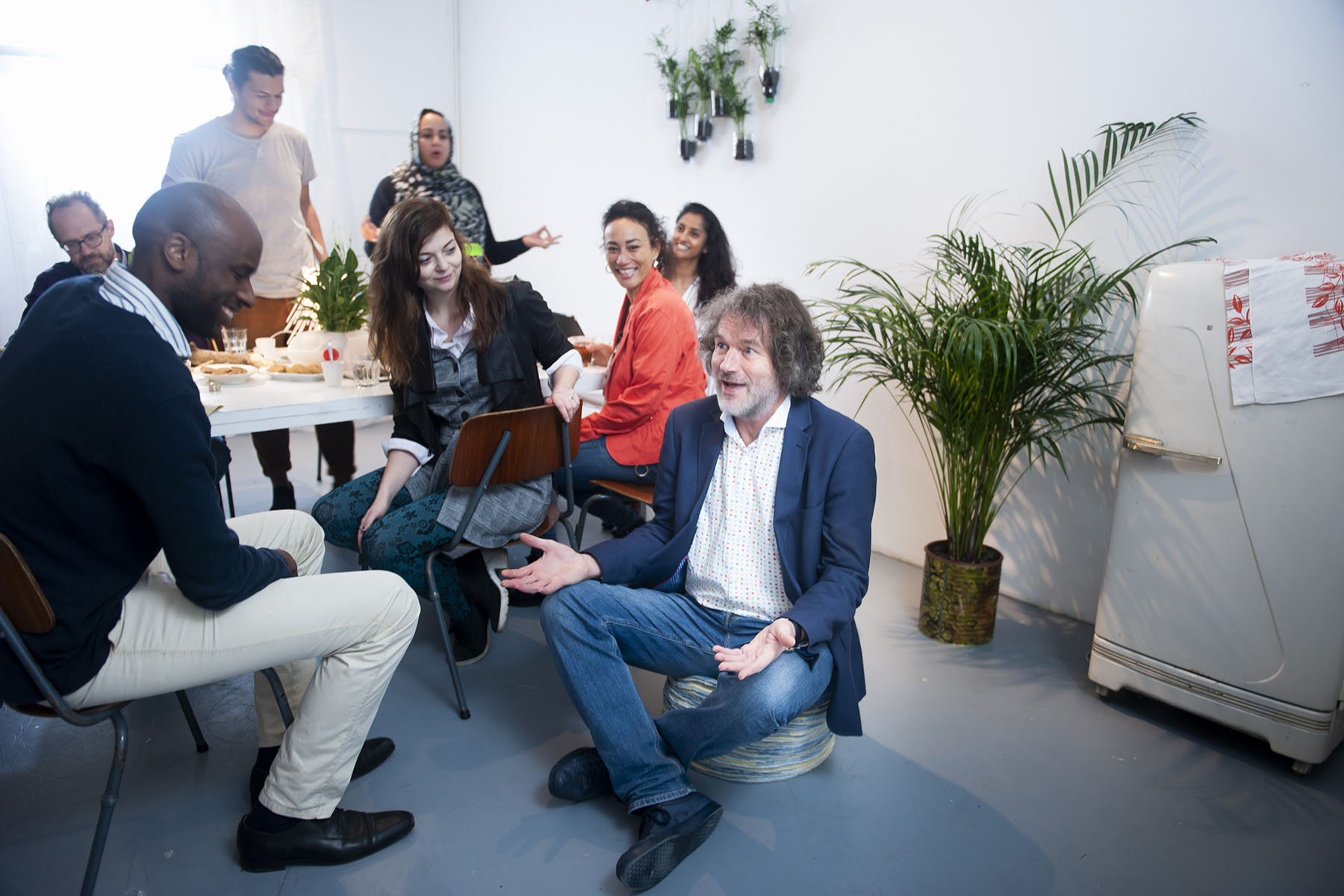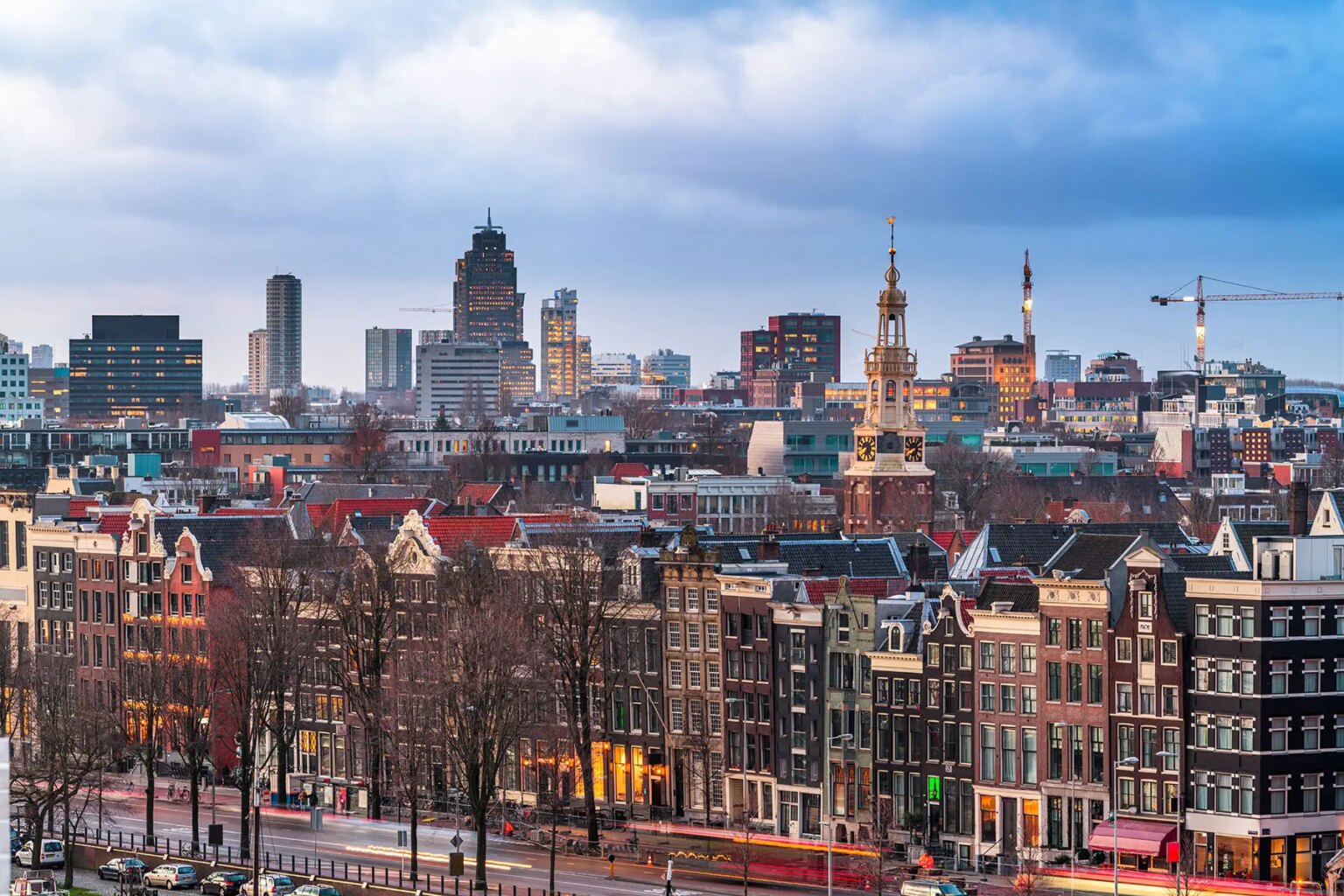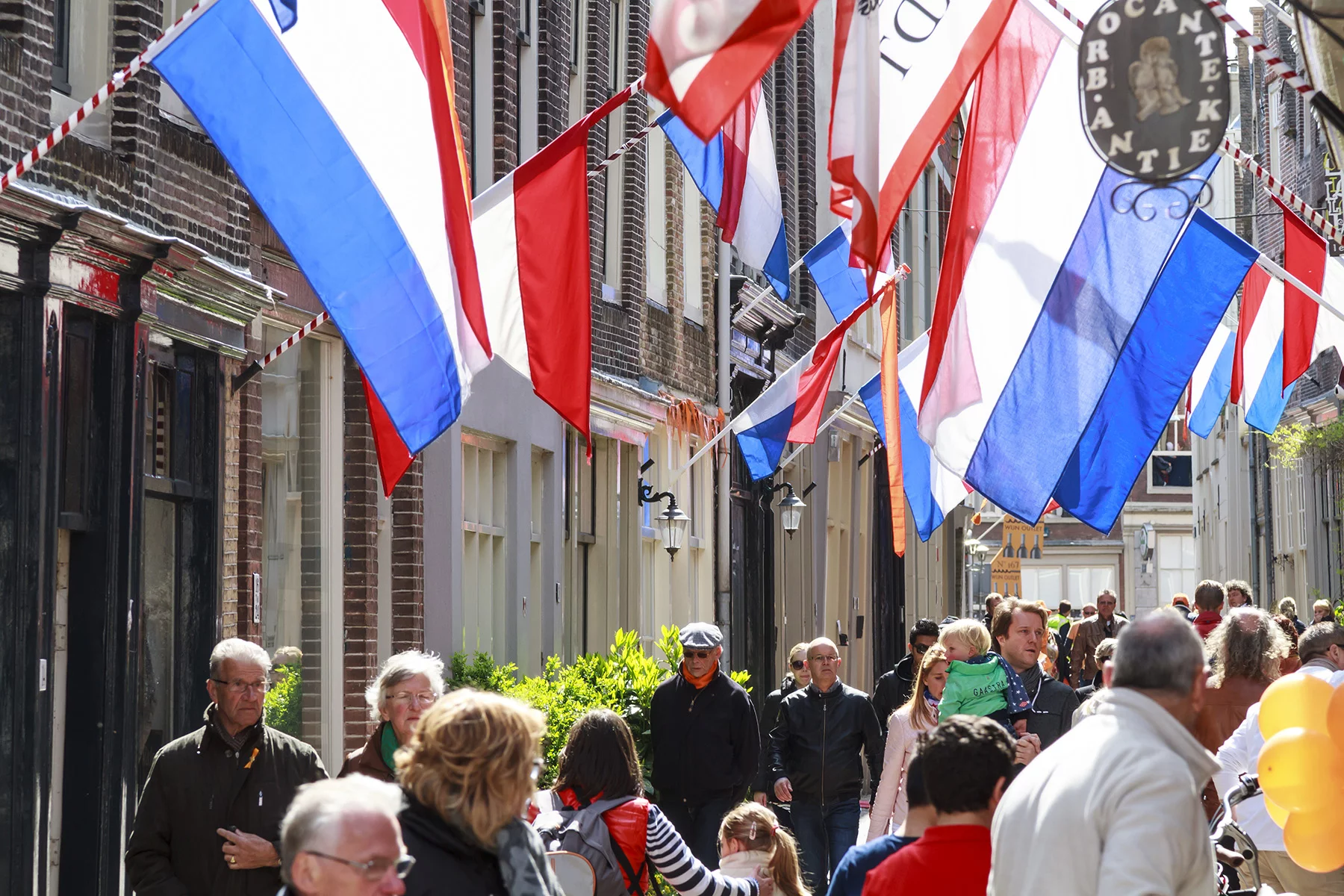People in the Netherlands have a distinct way of conducting business and behaving in the workplace – and it differs a lot from other countries. Whether you’re looking for a job or would like to start your own business, it’s good to familiarize yourself with the Dutch way of doing things – before you commit a collegial faux pas.
Discover how you can integrate seamlessly into the Dutch workplace by exploring the following topics:
- Business in the Netherlands
- What’s Dutch work culture like?
- Work-life balance in the Netherlands
- Business structure and hierarchy in the Netherlands
- How diverse is the Dutch workplace?
- Women in the workplace in the Netherlands
- Conducting business in the Netherlands
- Business etiquette in the Netherlands
- Social provision through businesses in the Netherlands
- Social and community-based businesses
- Business corruption and fraud in the Netherlands
- Useful resources
Resume.io
Trying to land the job that will take you on your next big adventure? Make sure your application is top of the pile with Resume.io's online resume builder. They provide resume templates, cover letter help, and more, making job applications effortless. Make it to the next round with Resume.io.
Business in the Netherlands
The Netherlands is renowned for having a competitive and stable economy, with an incredibly favorable fiscal climate, well-developed infrastructure, a low unemployment rate, and a well-educated workforce. Given its strategic location, the country has established itself as a hub for international trade and investment.
Conveniently, the majority of people speak fluent English as well. This makes the Netherlands an attractive destination for foreign businesses looking to start or expand their business and establish a presence in Europe.

The Netherlands is a small yet prosperous country, having the fifth-largest economy in the European Union (EU) in 2023. It has an open and semi-diversified economy with a well-balanced distribution of industries across different sectors.
While the majority of the Dutch economy is driven by the service sector, the Netherlands is at the forefront of several thriving industries, including:
- Agri-food
- Information technology
- Chemicals
- High-tech systems and materials (HTSM)
- Life sciences and health
- Creative industries
- Energy
- Aerospace
- Logistics
According to the Netherlands Foreign Investment Agency (NFIA), foreign companies account for around 18% of the added value to the Dutch economy. In 2020, these businesses created over 11,000 jobs and invested around €3.2 billion in the country. Better still, almost one million employees worked for a foreign company in the Netherlands.
What’s Dutch work culture like?
The Netherlands is characterized by openness and egalitarianism, and these values extend to its business culture. Directness, honesty, and efficiency are highly valued, and hierarchy is only subtly present in most workplaces. Business relationships are based on mutual respect and trust, with a focus on achieving results. Punctuality is another important aspect of Dutch etiquette, so you can expect meetings and appointments to start on time.
While the business culture in the Netherlands has some similarities with other northern European cultures, it also has some unique characteristics. For instance, the Dutch concept of polder model (poldermodel) emphasizes the importance of cooperation and compromising to achieve shared goals. This method of consensus decision-making is used in politics, business, and any situation where people have to work together to achieve goals in spite of their differences.
Work-life balance in the Netherlands
The Netherlands is known for having a healthy work-life balance. In fact, the country ranks third out of 41 countries on the OECD Better Life Index for work-life balance.

While the standard working week in the Netherlands is 36–40 hours, Eurostat data (2021) shows that average weekly work hours are just 32.2 hours – the shortest working week in the entire EU. Self-employed business owners work the longest hours, averaging 45 hours a week.
It’s uncommon for full-time employees to regularly work overtime; only 0.3% of Dutch employees work very long hours. This is the lowest rate in the OECD, where the average is 10%. The Dutch tend to value quality leisure time and acknowledge its importance for their overall physical and mental well-being.
What are typical working hours and spaces?
The typical working day in the Netherlands starts between 08:00 and 09:00 and ends around 17:00 and 18:00 from Monday to Friday. Many businesses offer flexible working hours, so it’s a good idea to check what the typical working hours are with your company.
While some cultures enjoy long and leisurely lunch breaks, it’s common in the Netherlands to take a 30-minute lunch break, and many Dutch people will have a simple cheese sandwich at their desks.
Full-time employees are entitled to a statutory minimum of 20 days of paid holiday leave per year. This is based on a calculation of four times the number of hours worked per week. These statutory days are in addition to national public holidays, of which there are normally seven each year. In practice, it’s common for employees in the Netherlands to have 25 days of holiday per year.
Like most countries, hybrid and remote working in the Netherlands has increased significantly since the COVID-19 pandemic. The country was also one of the first in the world to grant remote working flexibility by law; under the Dutch Flexible Working Act (Wet Flexibel Werken), employers must consider requests for remote working and provide a reason for denying it.
Business structure and hierarchy in the Netherlands
Businesses in the Netherlands typically have a flat and non-hierarchical structure. As a result, decision-making is often spread out among different levels of the organization, rather than being concentrated at the top. While there is still some level of hierarchy in most businesses, there is a greater emphasis on collaboration and teamwork, and Dutch employees generally have a high degree of autonomy and independence.
Dutch work culture is relatively informal, with a focus on openness, honesty, and direct communication. There is a general expectation that everyone’s views and ideas matter, regardless of their position in the company. Employees are encouraged and empowered to have input and question senior-level management, as long as it’s done in a respectful manner.

This flat business structure and consensus-driven leadership style are relatively consistent throughout the Netherlands. That said, larger companies and multinationals are more likely to have a more formal culture and traditional hierarchies, while smaller businesses may be more flexible and less hierarchical.
How diverse is the Dutch workplace?
The Dutch have a reputation for being open-minded and tolerant, making it easier for employees from different backgrounds to integrate into the workplace, regardless of their gender, ethnicity, or sexuality.
The Netherlands also has anti-discrimination policies that promote diversity and inclusion in the workplace, including:
- The Equal Treatment Act (Algemene Wet Gelijke Behandeling – AWGB)
- The Equal Treatment of Disabled and Chronically Ill People Act (Wet gelijke behandeling op grond van handicap – Wgbh/cz)
- The Equal Treatment in Employment or Anti-age Discrimination Act (Wet gelijke behandeling op grond van leeftijd bij de arbeid – WGBL)
- The Equal Treatment of Men and Women Act (Wet gelijke behandeling van mannen en vrouwen)
In addition, the country scores 84 points out of 100 points on the LGBTQIA+ Equality Index, which measures rights, laws, freedoms, and public attitudes toward the community (2023). The Netherlands also ranks 14th out of 49 European countries on the 2023 Rainbow Map, which measures LGBTQIA+ rights and freedoms.
Women in the workplace in the Netherlands
The Netherlands has made significant strides towards achieving gender equality, thanks in part to various legislation to promote equal treatment and opportunities for women in the workplace. For instance, the Equal Treatment of Men and Women Act (Wet gelijke behandeling van mannen en vrouwen) prohibits discrimination based on gender.
As recent as 2021, the country also implemented new legislation, including quotas and targets, to increase women’s representation on corporate boards. As a result, women in the Netherlands have a higher participation rate in the labor force than the EU average, and women are generally well-represented in corporate sectors.

The Netherlands also ranks third in the EU on the 2022 Gender Equality Index, which measures the progress of gender equality in several areas of economic and social life – including work, money, knowledge, time, power, and health. On a global scale, the country ranks 28th out of 146 on the Global Gender Gap Report 2022 by the World Economic Forum (WEF). This report measures the current state and evolution of gender parity across four key dimensions:
- Economic Participation and Opportunity
- Educational Attainment
- Health and Survival
- Political Empowerment
However, challenges and barriers to true equality remain. Dutch women are underrepresented in certain sectors and in leadership roles. In addition, balancing work and family responsibilities remains a particular challenge due to the limited availability of affordable childcare options. In response, recent policy changes – including the extension of paid parental leave – aim to address these challenges and promote greater work-life balance for both men and women.
Participation and representation in the workplace
Women’s participation and representation in the Dutch workplace have seen significant progress, but there are still areas for improvement. According to Eurostat, in 2019, the employment rate for women aged 20–64 was 75.5%, which is slightly lower than the rate for men at 84.8%. While this indicates a gender gap in employment, the gap is smaller than the EU average.
Women are also still underrepresented in senior management positions, particularly in industries such as finance and technology. In 2020, women accounted for only 26% of management positions in the Netherlands, lower than the EU average of 34%.
Regarding female entrepreneurship, female-owned enterprises in 2022 accounted for 37% of all businesses in the Netherlands, reports the Dutch Chamber of Commerce (Kamer van Koophandel – KVK). While this rate remains lower than men’s, it does demonstrate a growing presence of women entrepreneurs contributing to the Dutch business landscape.
In politics, 61 of 150 (41%) seats in the 2021 Dutch House of Representatives (Tweede Kamer der Staten-Generaal) are held by women. Although this also indicates progress, there is still room for gender parity in policymaking in the Netherlands.
Certain sectors and industries in particular display disparities in female representation. For example, traditionally male-dominated industries (such as IT and engineering) tend to have lower levels of female workers, while sectors like education and healthcare have a higher representation of female workers.
Is there a gender pay gap in the Netherlands?
The gender pay gap in the Netherlands remains relatively high. A 2021 report from the European Commission on gender pay disparity shows that women’s average gross hourly earnings in the Netherlands is 13.5% lower than men’s. This is higher than the EU average of 12.7%.

The Dutch government also reported that about one in six women in the Netherlands are not financially independent, with their income being less than 70% of the net minimum wage. One way the government aims to reduce this gap is by preventing gender pay discrimination with equal pay and treatment policies, including during pregnancy.
Attitudes to women in the workplace
In general, attitudes towards women in the workplace are progressive and positive. However, everyday sexism and prejudices towards women still exist in some workplaces, particularly in male-dominated fields. This can take the form of microaggressions or subtle biases from male counterparts, which can lead to lower rates of recruitment and promotion for women.
The Dutch government faces increasing pressure from the public to take action against sexual harassment in the workplace; on their website, they report that nearly half (45%) of all women in the Netherlands have been victims of sexual violence at some point in their lives.
If you experience unequal treatment or pay at work, you should speak with your employer as soon as possible. You can also file a complaint to the Netherlands Institute for Human Rights (College voor de Rechten van de Mens).
Conducting business in the Netherlands
Business strategy, planning, and decision-making
The Dutch are known for their affinity for organization and planning. Having a well-defined business strategy is considered essential for long-term growth and success.
Dutch work culture typically approaches planning and decision-making with a focus on collaboration, sustainability, and innovation. As consensual decision-making is the norm, businesses seek input from various stakeholders, including employees at all levels, to create a comprehensive strategy.
With that in mind, decision-making and planning can be a drawn-out process in which every detail is examined, and everyone’s opinions are considered. The process typically involves multiple rounds of discussions and feedback before reaching a consensus.
Formal business plans and annual business reviews are also common in the Netherlands. Companies often develop detailed business plans that outline their objectives, plans, and strategies for the coming year. These are reviewed regularly to evaluate performance, monitor progress, and align different departments and teams around common goals.
Dutch business meetings and negotiations
Companies in the Netherlands revolve around meetings, and you’ll often find there’s at least one meeting in your office every day. Given their frequency, meetings tend to be informal, yet adhere to fixed times and agendas.
As punctuality is highly regarded in the Netherlands, meetings normally start and end on time. It’s also expected that all members of the meeting contribute their ideas and opinions, regardless of their position in the company, so it’s important to come to meetings prepared.

Business negotiations are typically collaborative and focused on finding a mutually beneficial solution. With that in mind, meetings like these can take several rounds. In terms of their approach, the Dutch tend to be straightforward and transparent during negotiations, and they appreciate when their counterparts are the same.
Business networking in the Netherlands
Networking is a crucial aspect of doing business in the Netherlands. Dutch work culture values meaningful relationships built on trust, and attending networking events is an excellent way to build those connections that lead to successful collaborations.
The country has a strong networking scene, with a range of professional groups and events catering to various industries and sectors. Some major trade shows and events that take place in the Netherlands include:
- IoT Tech Expo Europe (Internet of Things Tech Expo)
- TNW Conference (The Next Web)
- SOSU Europe (Sourcing Summit)
Many organizations, including the Dutch Chamber of Commerce, also offer regular networking events, seminars, and workshops to support your business and professional development. Some networking groups and business clubs that could be of interest include:
- Entrepreneurs’ Organization – a global network of business owners
- SENSE (Society of English-language Professionals in the Netherlands) – a network of English-language professionals in the Netherlands
- CADS (Commercial Anglo-Dutch Society) – a business networking group in Amsterdam that promotes Anglo-Dutch relationships
- Women’s Business Initiative International – a not-for-profit association aimed at empowering women entrepreneurs
Do colleagues socialize in the Netherlands?
The Dutch are generally private people and prefer to keep their work life and personal life separate. Nonetheless, your colleagues may invite you to social events outside the office. Business dinners are common in the Netherlands, and most business entertaining takes place in restaurants; it’s relatively rare in Dutch culture to be invited to someone’s home unless you know them very well.

During dinner, you’ll usually engage in small talk rather than anything business-related. Good topics to talk about are your home country or city, cultural events, or hobbies.
Social activities, such as team-building activities or company outings (bedrijfsuitjes), are also considered important in Dutch work culture. Most companies will arrange a company outing at least once a year to help colleagues bond while improving communication and teamwork skills.
Business etiquette in the Netherlands
What is communication like in Dutch work culture?
The communication style in Dutch business culture is professional yet approachable, without too much formality. The typical business greeting is a firm handshake while maintaining eye contact. If you’re meeting someone for the first time, it’s common to introduce yourself with your first and last name. When there’s a notable difference in age or rank, Dutch people will often use the formal u (you), and meneer (sir) or mevrouw (madam).
While the Dutch are known to be open and straight-talking in their communication style, their body language is more low-key. Personal space is more important in the Netherlands than in most southern European countries, and it’s considered impolite to stand too close to someone or touch them unnecessarily.
Common conversation topics include culture, travel, and current events, while it’s best to avoid sensitive topics such as politics, religion, and personal finances.
What is the typical dress code in the Netherlands?
The clothing style in the Netherlands is rather informal, including in the workplace. While some companies may require formal or semi-formal wear, many companies allow employees to dress in casual or smart casual attire. A traditional suit and tie is more common in financial or legal industries, or for special occasions.
Dress codes can vary between companies, so if you’re unsure of the dress code, it’s perfectly acceptable to ask someone in the Human Resources (HR) department.
Is gift-giving considered normal in the Netherlands?
Gift-giving is not a common aspect of business relationships in Dutch culture – unless a baby is born. If you’d like to give a gift to a colleague or business partner, it’s best to give something modest. It’s also best to wait until you’ve established a relationship and finalized any business negotiations. If you receive a gift, it’s customary to open the gift immediately to show your appreciation.

If you’re invited to the home of a Dutch colleague, it’s polite to bring the host a small gift such as flowers, pastries, or a bottle of wine (but only if they drink alcohol).
Do Dutch people give out business cards?
Business cards (kaartjes) are usually exchanged near the end or after a business conversation or meeting. They usually include the person’s name, job title, and function. Some may also include contact information such as private phone numbers and addresses. Bear in mind, however, that this isn’t an invitation to phone them outside of office hours.
Social provision through businesses in the Netherlands
The Dutch social security system is one of the most comprehensive in Europe. Everyone who is employed in the Netherlands contributes to national insurance schemes that cover the following:
- Sickness and maternity leave
- Occupational disability insurance
- Old-age pensions
- Survivors’ benefits
- Unemployment benefits
- Child benefits
If you are self-employed, however, you are not insured against unemployment and do not receive sickness benefits and disability benefits. The website of the Dutch government provides more information on the benefits available to self-employed people in the Netherlands.
Health insurance in the Netherlands is implemented by private health insurance companies. Under the Health Insurance Act (Zorgverzekeringswet – ZVW), everyone living or working in the country is legally required to take out a health insurance plan (basisverzekering) with a health insurer.
Social and community-based businesses
Most businesses in the Netherlands are dedicated to social responsibility and giving back to the community. Corporate social responsibility is a key part of Dutch work culture, with companies placing a strong emphasis on sustainability, environmental protection, and ethical business practices.

The Dutch government has agreements with various business sectors and with societal organizations on International Corporate Social Responsibility (ICSR). When conducting business internationally, larger companies in particular are expected to implement an ICSR policy to ensure they act in an internationally responsible manner. This can include initiatives to improve the environment, support education and healthcare, and provide aid to disadvantaged groups.
In addition, ethical business practices are becoming increasingly popular in the Netherlands, with many businesses focusing on fair trade, sustainable sourcing of materials, and ethical labor practices.
According to the Institute of Business Ethics (IBE) report Ethics at Work 2021: International Survey of Employees, 75% of Dutch employees say that their organization acts responsibly in all its business dealings, and 71% say that it lives up to its stated policy of social responsibility.
Business corruption and fraud in the Netherlands
The Netherlands has a reputation for honesty and ranks as one of the least corrupt countries in the world. Corruption and bribery are also illegal under Dutch law, even when practiced abroad.
In Transparency International’s Corruption Perceptions Index 2022, the leading global indicator of corruption in the public sector, the Netherlands ranks eighth out of 180 countries. The country scores 80 out of 100, 0 being highly corrupt and 100 being very clean.
However, this is not to say that fraud and corruption don’t occur in the Netherlands. In recent years, several high-profile corruption scandals involving Dutch companies have occurred, including the 2018 ING money laundering scandal and the 2016 VimpelCom bribery scandal.
You can report any suspected incidents of corruption or fraud to the Netherlands Enterprise Agency (Rijksdienst voor Ondernemend Nederland – RVO), the police, or the Dutch fraud office (Fiscale inlichtingen en opsporingsdienst – FIOD).
Useful resources
- Belastingdienst – official website of the Dutch Tax Office
- Dutch Chamber of Commerce – official website with information and advice for business owners in the Netherlands
- Government.nl – official website of the Dutch government








